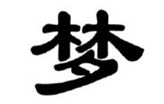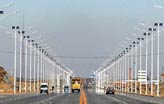Being small is still beautiful in Zhuji
Updated: 2011-09-23 08:39
By Yan Yiqi (China Daily)
|
|||||||||
Though small- and medium-sized enterprises (SMEs) in China are reeling from a multitude of problems, their brethren in Zhuji, in East China's Zhejiang province, are in a much better shape.
SMEs in China have of late been confronted with issues such as the appreciating yuan, financing difficulties, high taxes, shrinking export markets and higher labor and raw material costs. Global financial uncertainties have also had a major impact on the companies.
But a recent study conducted among 204 SMEs in Zhuji reveals that only 14 percent of the companies in the region have shuttered output. The National School of Development under Peking University and Alibaba.com conducted the study in June and July this year.
Zhuji is famous for socks, ties, textiles, pearl processing and other hardware industries, with most of it being driven by the labor-intensive SMEs.
"Even among the companies that have halted output, in some cases it has been for natural reasons while in some others it was due to the high risk investment of promoters. Most of the other firms decided to halt output on their own," the report says.
Export figures from the region also show that Zhuji SMEs have collectively outperformed their bigger peers.
During the first six months of this year, exports of enterprises that have independent trading qualifications in Zhuji reached $2.3 billion (1.7 billion euros), 21.9 percent higher than the same period of last year.
Out of the 857 companies in the region that had export records for the last six months, nearly 247 saw a decline in export volumes, with most of them being large companies.
"Compared with our bigger peers, SMEs in Zhuji have a brighter future in terms of exports," says Ruan Zhiming, chief of the social development department at the Zhuji development and reform bureau.
"Part of the reason why the SME sector in Zhuji is relatively unscathed is that most of the companies have shifted their focus to the domestic market. At the same time the relatively small scale of the SMEs has also helped them quickly respond and adjust to the changes in the external economic environment," says Ruan.
That, however, does not mean that the SMEs are free of problems. Some of the issues that exist in other region are prevalent in Zhuji too.
"The current economic scenario is grim for SMEs and it is no different for those in Zhuji. But the local government and companies are trying to evolve different kinds of platforms to help the SMEs overcome these problems," says an official from the Zhuji commission of economic and information technology, on condition of anonymity.
All of them admit that the major concern for SMEs is still lack of financing avenues.
"We need funds of around 2 million yuan (229,000 euros) for our operations. But it is next to impossible to get funding from the banks as the lending threshold is high and procedures complicated," says Wang Jianmin, owner of a hardware company in Zhuji that produces tubes for boilers.
"Since we have no avenues to get the required funding, we are unable to execute or accept big orders," says Wang.
According to data from the Zhuji commission of economic and information technology, banks and rural credit cooperatives have financed only 21 percent of the city's enterprises.
"It is essential that the government set up more credit platforms and exclusive credit organizations for the SMEs," says Xue Zhaofeng, a researcher with the National School of Development at Peking University.
Rising labor and raw material costs are also an issue that most SMEs in Zhuji have to contend with.
"Higher labor costs are impacting our bottom line due to the increased expenditure for wages. But we do not have much of a choice as our operation is still a labor intensive one," says Feng Zhigang, the deputy general manager of Yongbao Pearl Company.
Feng also says stiff competition from other pearl companies for experienced workers is adding to the rising labor costs for his industry.
(China Daily 09/23/2011 page12)










